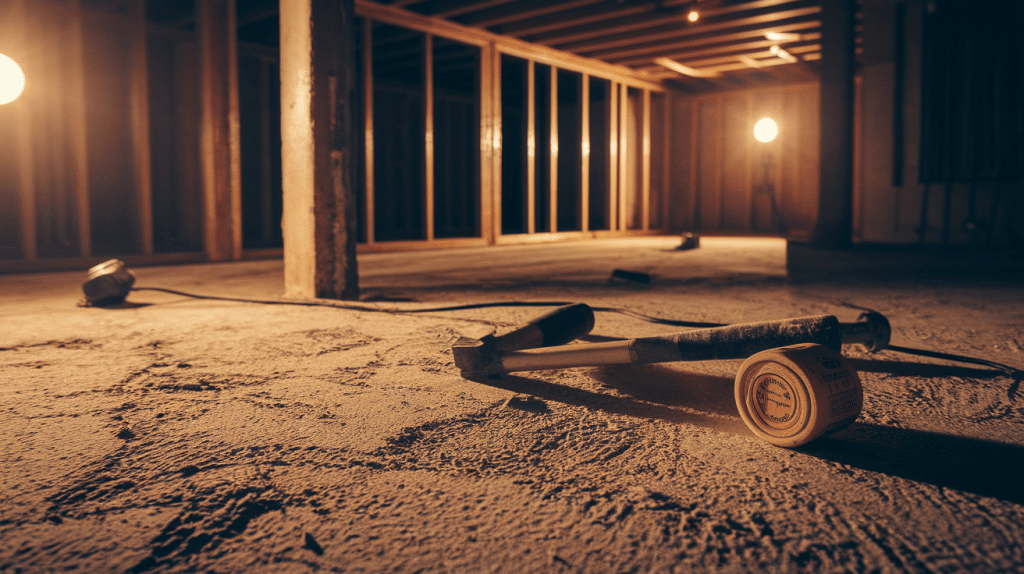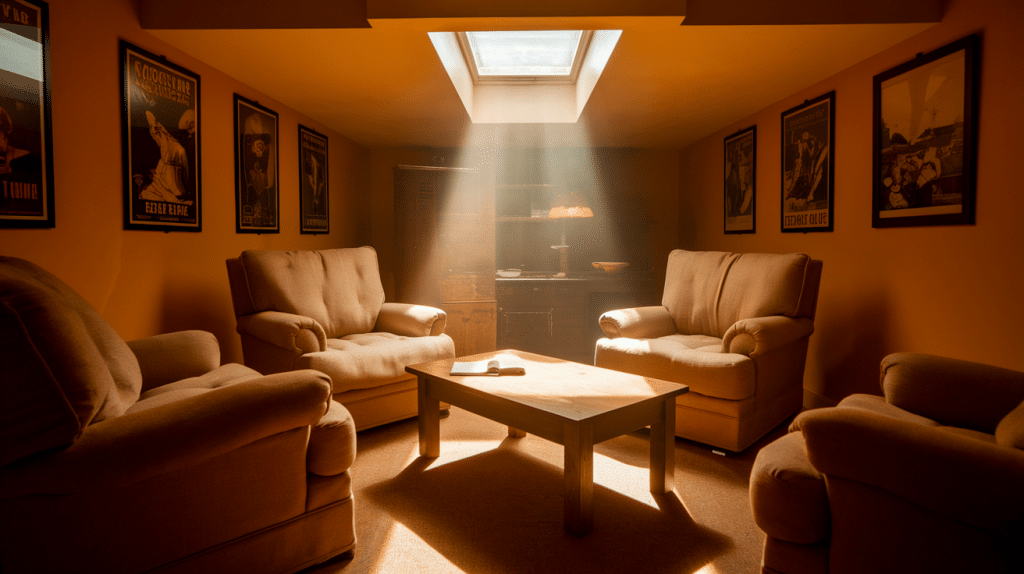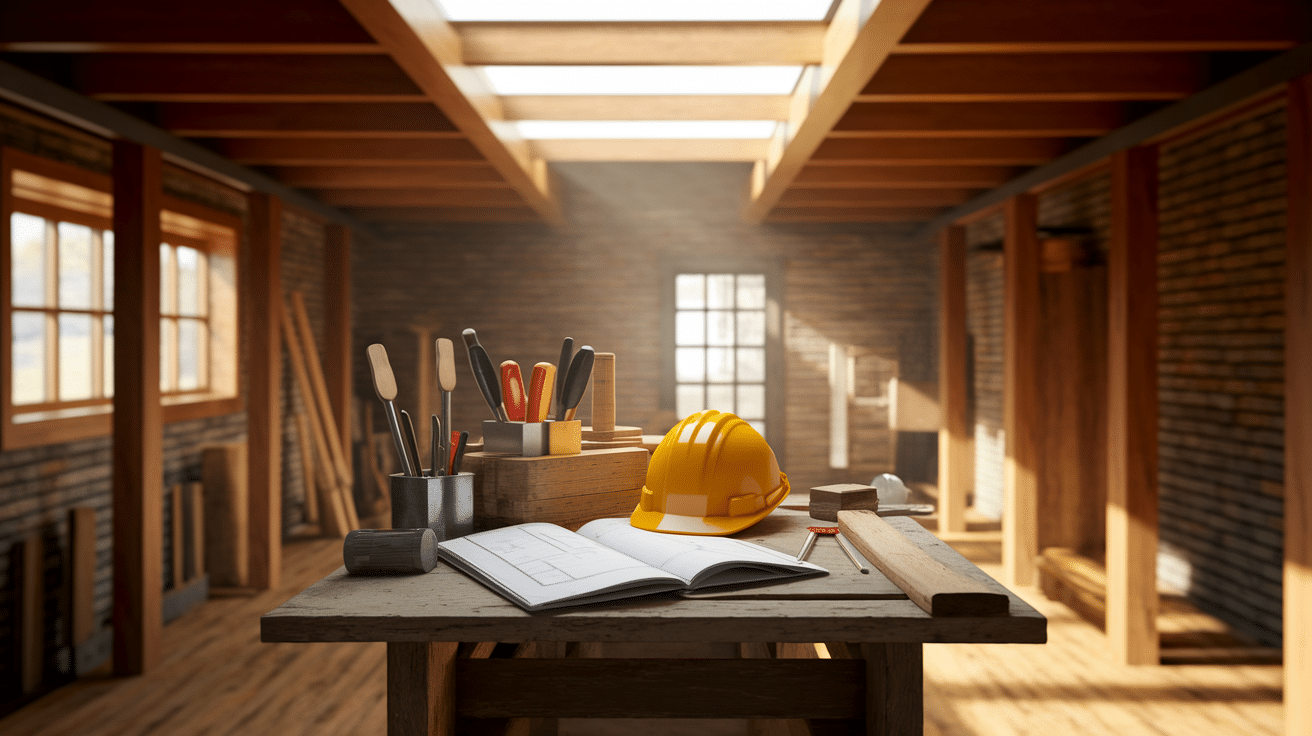Are you tired of looking at that unfinished basement and wondering how long it would actually take to convert it into usable living space?
Many homeowners sit on the fence about basement finishing projects, knowing the potential for extra square footage and increased home value, but are unsure about the time commitment involved.
Converting your basement into a functional area, if it’s a family room, home office, or rental unit, represents one of the smartest investments you can make in your property.
The timeline for completing this project varies significantly based on several key factors that we’ll examine closely.
Why Should You Have a Basement?
Having a finished basement offers tremendous value for homeowners seeking to maximize their property’s potential.
This additional living space can serve multiple purposes – from entertainment areas and home offices to guest bedrooms or rental units that generate income.
A completed basement significantly boosts your home’s market value, often providing a strong return on investment when it’s time to sell.
Beyond financial benefits, basements offer practical advantages such as extra storage, year-round climate-controlled comfort, and the flexibility to adapt the space as your family’s needs change.
With proper planning and execution, your basement can become a valuable extension of your living space.
Factors That Affect Basement Finishing Time

Several key factors determine how long your basement finishing project will take, from space size to unexpected complications that arise during construction.
1. Size of the Basement
Larger basements require more materials, labor, and time for completion. A 500-square-foot space might take 4-6 weeks, while a 1,500-square-foot basement could extend to 8-12 weeks.
More square footage means additional framing, drywall installation, flooring, electrical work, and painting.
The complexity increases proportionally with size, as contractors need more time to ensure quality workmanship across expanded areas.
2. Scope of the Project
Simple renovations involving basic framing, drywall, and flooring typically take 4-8 weeks.
However, comprehensive projects including bathrooms, kitchenettes, or wet bars can extend timelines to 12-16 weeks. Adding plumbing and electrical systems requires specialized contractors, permits, and inspections.
Each additional feature multiplies the complexity, coordination requirements, and overall project duration significantly.
3. DIY vs. Professional Help
Professional contractors complete basement projects 50-70% faster than DIY approaches.
Experienced teams work efficiently with proper tools, expertise, and established workflows. DIY projects often face delays from learning curves, tool procurement, and weekend-only schedules.
While professional help costs more upfront, the time savings and quality assurance often justify the investment for most homeowners.
4. Permit and Inspection Requirements
Local building codes determine permit requirements, which can add 2-6 weeks to project timelines. Applications, plan reviews, and scheduled inspections create mandatory waiting periods.
Some jurisdictions require multiple inspection phases throughout construction.
Research local requirements early and submit applications promptly to minimize delays. Working with experienced contractors familiar with local codes helps streamline this process.
5. Unexpected Issues
Moisture problems, foundation cracks, or outdated electrical systems can add weeks to project timelines.
Water damage requires remediation before construction begins. Structural repairs need engineering assessments and specialized contractors.
Asbestos or lead paint removal requires certified professionals and extended timelines. Budget 20-30% additional time for potential complications in older homes or previously unfinished spaces.
Estimated Timeframes for Different Project Types
Understanding different project scopes helps homeowners set realistic expectations for basement finishing timelines, from basic improvements to complete transformations.
| Project Type | Timeframe | Description |
|---|---|---|
| Basic Basement Finish | 1-2 months | Focuses on essential improvements: framing, insulation, drywall, basic flooring, and lighting. Simple electrical work and painting complete the space without complex systems. |
| Mid-Level Finish | 2-4 months | Includes bathroom additions, kitchenette installations, built-in storage, and upgraded finishes. Requires permits and specialized contractors for plumbing and electrical work. |
| Full Renovation | 4-6 months or more | Comprehensive transformations with multiple bedrooms, full bathrooms, entertainment areas, and premium finishes. Involves complex plumbing, electrical, HVAC, and custom features, demanding more time and planning. |
Step-by-Step Process of Finishing a Basement

Breaking down basement finishing into manageable steps helps homeowners understand the construction sequence and realistic timeframes for project completion.
Step 1: Planning and Design (1–2 weeks)
Create detailed floor plans, select materials, obtain necessary permits, and finalize contractor agreements. This phase includes measuring spaces, choosing fixtures, establishing budgets, and coordinating schedules.
Proper planning prevents costly delays and ensures smooth project execution throughout the construction process.
Step 2: Demolition and Cleaning (1 week)
Remove existing materials, clear debris, and prepare the workspace for construction. This involves disposing of old fixtures, cleaning surfaces thoroughly, and addressing any immediate structural concerns.
A clean, organized space allows contractors to work efficiently and safely throughout the remaining phases.
Step 3: Framing, Insulation, and Plumbing (2–3 weeks)
Install wall frames, add insulation for temperature control, and run plumbing lines for bathrooms or utility areas.
This structural phase creates room divisions, ensures proper climate control, and establishes water supply and drainage systems. Quality work here prevents future problems and code violations.
Step 4: Electrical Work, Drywall, and Flooring (3–4 weeks)
Install electrical systems, hang and finish drywall, then add chosen flooring materials. This phase includes outlet placement, lighting installation, wall texturing, and surface preparation.
Multiple trades coordinate closely during this period, requiring careful scheduling to maintain project momentum and quality standards.
Step 5: Painting, Trim, and Final Touches (2–3 weeks)
Apply paint, install trim work, add fixtures, and complete decorative elements. This finishing phase includes cabinet installation, hardware mounting, and final cleanup.
Attention to detail during this stage determines the overall appearance and functionality of the completed basement space.
Step 6: Inspection and Final Approval (1 week)
Schedule required inspections, address any code violations, and obtain final occupancy permits. This final step ensures all work meets local building standards and safety requirements.
Proper documentation protects homeowners and confirms the project meets all legal requirements for use.
Tips to Speed Up the Process
Smart strategies can significantly reduce your basement finishing timeline, helping you enjoy your new space sooner while maintaining quality workmanship throughout the project.
- Hiring the Right Professionals: Experienced contractors work faster with established workflows, proper equipment, and skilled teams, completing projects 30-50% quicker while ensuring superior results.
- Preparing in Advance: Order materials early, finalize designs before construction, clear workspace completely, and obtain permits ahead of time to prevent delays and interruptions.
- Clear Communication: Regular contractor check-ins, prompt decision-making on design questions, and immediate problem resolution keep projects moving forward smoothly without costly delays.
Common Pitfalls and Delays
Several common obstacles can derail basement finishing projects, turning anticipated timelines into extended delays that frustrate homeowners and increase costs unexpectedly.
| Delay Type | Impact | How to Avoid |
|---|---|---|
| Permit Approval Delays | Adds 2-4 weeks to the project due to incomplete or late permit applications. | Submit permit applications early with complete documentation and professional drawings. |
| Budget Constraints | Project pauses due to unexpected costs like structural repairs or code compliance issues. | Establish a contingency budget of 20-30% above estimated costs to handle unexpected expenses. |
| Material Shortages | Creates scheduling gaps and delays. | Order materials well in advance and confirm delivery schedules with suppliers to avoid delays. |
| Contractor Availability Conflicts | Delays occur when contractors are unavailable during peak seasons. | Book contractors during off-peak seasons and maintain backup options for critical trades to prevent conflicts. |
| Poor Initial Planning | Design changes mid-project lead to rework and additional permits, doubling timelines. | Ensure thorough planning upfront to minimize design changes, and avoid mid-project alterations. |
Conclusion
Your basement finishing timeline depends entirely on your vision, budget, and execution strategy.
If you’re planning a simple weekend retreat or a luxury entertainment space, understanding realistic timeframes prevents frustration and helps you make smart decisions.
Simple projects wrap up in 1-2 months, while complete renovations can stretch 4-6 months or beyond.
Professional contractors deliver faster results than DIY approaches, though costs reflect their expertise.
Smart planning, early permit submission, and adequate budgeting separate successful projects from endless headaches that drain your wallet and patience.
Ready to stop thinking and start building? Connect with local contractors today for personalized timelines that match your specific goals and budget constraints.


